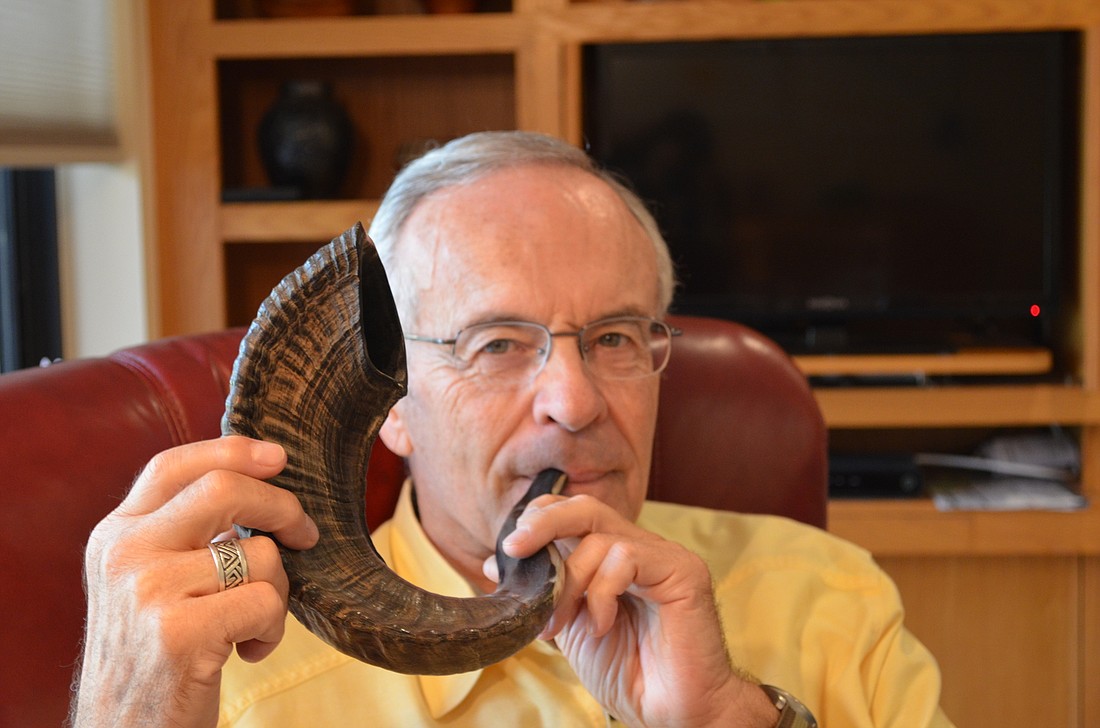- November 24, 2024
-
-
Loading

Loading

It’s just after 10 a.m. on a Friday, but Lowell Lakritz isn’t worried about waking his Bay Isles neighbors.
The high holy days of Rosh Hashanah are less than two weeks away, and he has shofar sounding to practice.
Today, he's using the newest addition to his collection — a ram's horn he picked up on his summer trip to Israel.
“This one has a longer barrel and has a different type of sound,” says Lakritz, as he points to the largest shofar in his collection. “It’s a little bit more mellow.”
A shofar is a ceremonial Jewish instrument made from the horn of an animal, traditionally one that chews its cud, like a cow, deer or moose. Lakritz’s collection includes two horns from rams and one from an African antelope. The varying horns and their lengths give each one a distinctive pitch.
Lakritz' first time playing a shofar was more than 30 years ago as a practicing dentist in Madison, Wis. One day at temple, he saw a shofar on display and gave it his best attempt. As a former trumpet player, Lakritz says the new instrument came easily to him.
“The formation of the lip and the embouchure that you use is somewhat similar to playing a brass instrument," he says. "So it wasn’t difficult for me to pick it up.”
After hearing Lakritz play, his rabbi asked him to perform for the Rosh Hashanah service, and he’s been doing it ever since. Playing the shofar isn't just a valuable skill, it's instrumental to fulfilling the commandment.
“Most Jews do not know how to blow a shofar," says Rabbi Brenner Glickman, of Temple Emanu-El. "But every congregation has someone who does, because we need to.”
Glickman cites a commandment that specifies that the congregation is required to hear the shofar. Essentially, if no one is there to blow the shofar, the congregation isn’t completing the services as outlined in the Torah.
Lakritz played the shofar Sunday during Temple Emanu-El's Rosh Hashanah service and will play it again next Tuesday for Yom Kippur.
This marks the second year that Lakritz has been asked to play the shofar for the congregation, and he's now the principal shofar player.
“As they say in the Jewish faith, it’s a mitzvah,” he says. “It’s a great honor to be chosen to do this.”